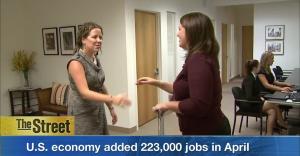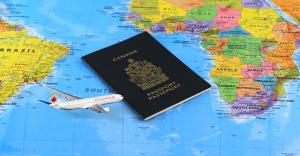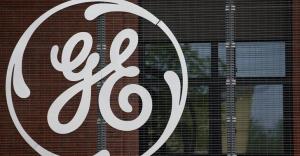Everyone has a story about an outrageous fee triggered by an
otherwise ordinary transaction. Perhaps you arrived at the airport only
to learn that your carry-on bag was too big--and were forced to pay $100
to check it. Or you inadvertently overdrew your checking account by a
few dollars and got dinged $35 by your bank. Or maybe you were on a
beach vacation and your hotel tacked on a "resort fee" of up to $50 per
night to cover "amenities."
You can't avoid all such fees, but you can sidestep
plenty of them with some foresight. Use these tips to keep hundreds--or
even thousands--of dollars in your pocket.
Hotel: Cancellation and Check-In
You could be socked with a cancellation fee if you change your plans at
the last minute. Hilton and Marriott impose a penalty equal to one
night's stay if you cancel on the day you planned to arrive, and some
hotels require more than 24 hours' notice.Early check-in or
late checkout could run $20 or more, and if you leave your bags with the
concierge, you may be hit with a fee for luggage storage of a buck or
two per bag.
How to avoid them
Be sure to
check the fine print when booking your reservation and familiarize
yourself with the rules about cancelling. Most hotels offer different
rates for the same room, with higher-priced options allowing more
flexibility. If you think you may need to change your plans, agreeing to
pay more from the get-go may be your best bet.
If you have a
solid reason to check in or out of the hotel outside of normal hours or
to cancel your reservation--say, because of a flight delay--request that
the fee be waived.
When to suck it up
The
lowest rates on hotel rooms are often prepaid, non-refundable options.
If you want to nab these deals, you simply have to commit.
Hotel Amenities
Mandatory resort fees, which cover such staples as concierge services
and the fitness room, can hit $50 a night, says Anne Banas, executive
editor of
SmarterTravel.com.
The fees, commonly found at hotels in Las Vegas and at beach
destinations, usually don't show up in advertised rates. Also, certain
hotels (especially high-end ones) still levy fees of up to $20 a day for
Wi-Fi access or charge extra if you'd like faster speeds.Too
smart to pay inflated minibar prices? If you rearrange the contents of
the fridge to hold your own drinks, sensors may be tripped. That could
cost from a few dollars to $30 or more for each item you move. And don't
assume the bottle of water sitting on the desk is free. Drinking it
could add $5 or more to your bill.
How to avoid them
You can visit
www.resortfeechecker.com
to look up fees at the hotels you're considering. If any are
unacceptable or unavoidable, simply consider another hotel. You may be
able to bypass some fees by joining a loyalty program or booking
directly on its Web site. Especially if you're a frequent guest, you
should try speaking with a manager to wipe away the fees. If you don't
have complimentary in-room Wi-Fi, see whether it's offered free in the
lobby or business center. Ask the front desk to remove charges that seem
out of line--especially ones for minibar items you never consumed.
When to suck it up
It
never hurts to ask, but you may not have much luck negotiating hotel
fees away. One fee you're likely stuck with: If you're packing more than
two adults in a room and the hotel knows about it, you'll probably pay
up to $50 per extra person per night.
Airline Baggage
Air travelers are by now all too familiar with the $25 fee each way to
check a bag when flying domestically. Fees for additional bags range
from $35 or so for a second up to $200 for a fourth. An overweight bag
could run you another $50 to $200 or more. Taking the bag fee to
extremes, Allegiant, Frontier and Spirit airlines charge from $10 to
$100 to bring a carry-on bag, depending on how and when you pay the fee.
And if a security or gate agent deems that you have an oversized
carry-on, you may have to pay a hefty fee to check it at the gate
(Spirit charges $100). Or you may be sent back to the ticket counter to
check the bag and risk missing your flight.
How to avoid them
Review your airline's policies on luggage on its Web site, or compare the policies of 13 major U.S. airlines on
SmarterTravel.com.
Southwest lets you check two bags free. JetBlue has traditionally
allowed one free checked bag, but new pricing tiers eliminate the free
checked bag on cheaper tickets. It may be best to pay baggage fees when
you book or check in online instead of when you reach the airport. In
some cases, checking a bag is less costly than bringing it as a
carry-on. Frequent fliers may benefit from using an airline rewards
credit card that includes free checked luggage in exchange for an annual
fee.
If
a single bag is overweight, it may be cheaper to pack and pay for a
second bag. Or compare the cost of shipping items or luggage, rather
than taking them on a plane. You can use calculators on the Web sites of
the U.S. Postal Service, UPS and FedEx to get an estimate of what you'd
pay. Ground shipping a 60-pound bag with UPS from Miami to Chicago may
run about $70, compared with fees of more than $100 to check an
overweight bag on some airlines.
Other Airline Extras
Airlines are also pushing the envelope with a variety of other fees:
Passengers who pay the basic fare on Air Canada, Allegiant, Frontier and
Spirit are charged anywhere from a dollar to $80 each way to select a
seat (any seat); on other airlines, you have a limited selection of
no-extra-fee seats. If you aren't Web-savvy, get ready to pay a booking
fee; most airlines charge from $10 up to $45 to book tickets on the
phone, at the airport or at a ticket center.You could be
penalized for printing your boarding pass at the airport; Allegiant
charges $5, and Spirit charges $10. A few airlines, including US Airways
and Virgin America, charge $3 to $10 for a pillow and blanket.
How to avoid them
Again,
get familiar with airlines' policies on everything. You can dodge fees
either by booking a relatively fee-free flight with Southwest Airlines,
or prepare for your trip by, say, printing boarding passes at home and
bringing your own pillow. Frequent fliers with certain airlines may also
escape some fees; for example, Frontier Airlines typically charges $10
for booking over the phone, but the fee is waived for elite members.
When to suck it up
You
may be able to cover the price of a ticket with frequent-flier miles,
but you'll still pay government fees and taxes. Plus, some major
airlines charge $75 if you book a rewards ticket within three weeks of
departure. And if you change your reservation, you may pay from $30 to
$200 to redeposit the miles.
If you have to change or cancel a
nonrefundable ticket, many airlines will charge as much as $200 for a
domestic flight, or more than $400 for an international flight. Outside
of dire circumstances, such as hospitalization or a death in your
immediate family, you're going to end up paying it.
Is your kid
traveling solo to visit Grandma? If he's age 12 to 15 or younger, you'll
pay a fee of $25 to $150 each way, depending on the airline. Bringing a
furry companion will result in a pet fee of $25 to $200 or so. If
allowed, it's generally cheaper if Fluffy travels in the cabin instead
of the cargo hold.
Car Rental Insurance
The collision damage waiver, or CDW, which covers damage to a rental
car, often runs $20 to $30 a day, possibly doubling the bargain rate you
worked so hard to find. Worse, you are likely to get the hard sell to
buy it.
How to avoid them
Most people
can skip the CDW. Your personal auto-insurance policy covers rental-car
damage and liability up to the same limits as for your own vehicle.
Plus, most credit cards will reimburse for damage to rental cars not
covered by your personal auto policy as long as the rental was both
reserved and paid for with the card.
When to suck it up
If
you don't have your own car insurance, you should probably buy at least
supplemental liability insurance at the counter (it may run about $13 a
day) because your credit card alone won't cover personal injury or
property damage you cause. If you'd rather keep a claim for a potential
accident off of your personal insurance records, buying the CDW at the
rental counter is a better idea. If you skip the CDW and are involved in
an accident, you may be charged administrative and loss-of-use fees
(money the rental company loses when the car is in the shop) if your own
auto insurance and credit card don't cover them.
Car Rental Extras
ThinkstockCar
rentals come with a host of other fees, too. Renting a GPS may be about
$13 a day. A transponder to pay tolls electronically may run more than
$60 a week. A car seat for a child is about $11 a day. And it's best not
to light up; you could be smacked with a fee of $250 for smoking if the
cleaning crew smells smoke on the upholstery.
How to avoid them
Use
as many of your own devices as possible, such as a GPS device or
navigation app on your smartphone. If you have your own transponder,
such as E-ZPass, bring that, too (check whether you need to register the
rental car with the transponder provider).
When to suck it up
If
you pick up the car at the airport, you may have to hand over an
additional 10% or more in airport concession charges. It may cost a
whole extra day's rental fee if you return the car late. Unless there
has been a death in your immediate family, you're probably stuck with
the fee.
Annual Credit-Card Fees
A credit card's annual fee may be $50 to $100 (and even more for
high-end cards). Paying the fee can be worthwhile if you earn enough in
card benefits. The American Express Blue Cash Preferred card, for
example, charges $75 a year but offers cash-back rewards that include 6%
on up to $6,000 in supermarket purchases per year. The American Express
Gold Delta Skymiles card ($95 annual fee; waived the first year)
provides two miles for every dollar you spend on Delta Air Lines
purchases, and it gets you a free checked bag on every flight for up to
nine passengers on your reservation.
How to avoid them
Plenty
of great credit cards come without a fee. The Citi Double Cash card,
for one, pays 1% when you make a purchase and an additional 1% when you
pay the bill. If you have a card with an annual fee that's no longer
benefiting you, ask the issuer whether it can migrate your account to a
new, no-fee card while maintaining the original account opening date for
the old card, suggests Nick Clements, cofounder of personal finance
site MagnifyMoney. Your average account age--a component of your credit
score--will stay intact.
Late Credit-Card Payments
Card issuers can charge up to $25 the first time you pay late and $35
if you do it again within six billing cycles (plus, your annual
percentage rate may spike).
How to avoid them
Ask
the issuer to waive the fee. If you've been a good customer, it will
likely oblige. The Discover It card charges no fee the first time you
pay late, and the Citi Simplicity card never charges a late fee.
When to suck it up
If your credit card bills are chronically overdue, the issuer probably isn't going to waive late-payment penalties.
Foreign-Transaction Fees
Some credit cards charge an extra 3% or so on every transaction you make outside the U.S.
How to avoid them
When
you travel abroad, pack a credit card without the fee. Capital One
charges no foreign-transaction fees on its cards, and the Barclaycard
Arrival Plus and Chase Sapphire Preferred cards also skip the fee.
When to suck it up
Using
your debit card abroad may result in a fee of 1% to 3% of the
transaction amount, plus an increased charge to use out-of-network ATMs.
Balance Transfer fees
If you want to move debt from a card with a high interest rate to one
with a lower rate, you'll often pay a fee of 3% of the balance.
How to avoid them
The
Chase Slate card charges no balance-transfer fee as long as you move
the money within 60 days of opening the account, and the APR is 0% for
15 months. Or try bargaining for a lower fee on a card you prefer.
Prepaid Debit Card Fees
Prepaid cards are notorious for nickel-and-diming customers. You could
pay as much as $10 to activate the card, $2 or more every time you visit
an ATM, and up to $10 in monthly fees.
How to avoid them
The
Bluebird From American Express and Walmart and the American Express
Serve cards have minimal fees. Some cards waive the monthly fee if you
meet certain requirements, such as arranging for direct deposit.
Cash-Advance Fees
The fee for getting cash with your credit card averages 4%--a spike of
40% since 2010, according to credit card research site CardHub.com.
Interest accrues immediately, usually with a rate of at least 20%.
Cash-advance fees are often tied to withdrawing cash at the ATM or with a
bank teller, but sending cash from your credit card to your checking
account could trigger them, too.
How to avoid them
Use an alternative source of funds if you really need the cash.
Bank-Account Maintenance Fees
The average monthly maintenance fee for a checking account reached a record high of nearly $13 in 2014, according to
MoneyRates.com, which tracks bank accounts. Only 26% of checking accounts charge no monthly fee.
How to avoid them
With
most accounts, you can avoid the fee by maintaining a minimum balance
or setting up direct deposit. Better yet, use a free, no-strings
account. Many credit unions, community banks and online banks offer them
When to suck it up
Especially
if you prefer banking with a large institution but keep a small profile
(a low balance and only one or two accounts), you'll have to put up
with standard service fees. Replacing a lost debit card may cost you $5
and getting a cashier's check could be $8 to $10.
ATM Surcharges
The average fee to visit an out-of-network ATM is more than $4, when
you combine what banks charge their own customers to withdraw cash from
out-of-network ATMs with fees that ATM owners charge nonmembers, says
MoneyRates.com.
How to avoid them
Check
your bank's Web site or mobile app for a directory of nearby in-network
ATMs. If you are a large depositor or have several accounts, the bank
may waive or reimburse some ATM fees. The Ally Bank Interest Checking
and Bank of Internet USA Rewards Checking accounts are fee-free and
reimburse all out-of-network surcharges with no minimum-deposit
requirements.
Overdraft Fees
If you've agreed to have the bank cover overdrafts for you, fees often
surpass $30 per transaction when you overdraw your account. And you
could get nailed with similar penalties for bounced checks or automatic
recurring payments that exceed your balance. Leaving your balance
negative for a few days can trigger another fee of more than $30.
How to avoid them
Tie
your checking account to a savings account from which the bank can pull
money in case you dip below your checking balance. Many big banks
charge $10 to $13 to transfer the money, but some institutions do it
free. The bank may also waive fees if you ask.
Bank-Account Inactivity Fees
If you haven't made deposits into or withdrawals from a savings or
money market deposit account for a while--say, six months to a year--the
bank may charge a monthly fee of $5 to $10.
How to avoid them
Set
up regular transfers into or out of the account; $1 a month may be all
it takes (but make sure the banks involved don't charge transfer fees).
Sometimes, calling customer service to inquire about the account
qualifies as activity.
Cable, Internet and Phone Installation
Cable companies often add a fee of anywhere from $20 to $150 to have a
technician set up cable or Internet service in your home.
How to avoid them
You
can try to negotiate away the fee as a condition of signing up for
service. Or, if all you have to do is connect a modem or cable box, tell
the company that you'd rather do the job yourself. If a technician has
to come to your home for a service call and you're charged for it, ask
to have the fee removed--especially if the problem is the provider's
fault.
Cable, Internet and Phone Activation
These charges may appear on cable, Internet or wireless bills to start new service, and they could run $40 or so.
How to avoid them
Try asking the provider to waive the fee. And look for promotions from wireless carriers that exclude the charge.
When to suck it up
Federal,
state and local government taxes together make up an average of 17% of a
cell-phone bill, according to the Tax Foundation. Cable and Internet
plans can also come with significant taxes and fees. Comcast adds a
$1.50 "broadcast TV fee" on top of regular rates in some markets.
Cable, Internet and Phone Early Termination
A cable company may lure you with a promotional offer that includes low
rates for six to 12 months but increased rates after that. If you
signed a contract, you're stuck paying the higher rate or canceling
service and forking over a contract-termination fee of more than $300.
Wireless phone providers also charge such fees. Typically, cable and
wireless companies prorate the fee so that the longer you've held the
contract, the smaller the charge.
How to avoid them
Sprint
and T-Mobile recently ran promotions that promise to reimburse
customers of competing carriers for early-termination fees if they
switch (but they have to meet requirements such as buying a full-price
phone with the new carrier). Or you can try asking a phone or cable
company to forgo the fee. It may, for example, waive the fee if you're
moving to an area where it doesn't have service. Most phone and cable
service operators offer plans that don't lock you into a contract, but
cable pay-as-you-go plans may cost more per month.
Data Overage Charges
If you have a Verizon Wireless More Everything plan that includes 1GB
of data, for example, Verizon charges $15 for each extra gigabyte of
data you use. For many smartphone users, about 2GB a month is enough.
But if you stream a lot of video or music, you may want to have a plan
that provides unlimited data.
How to avoid them
Find
a phone plan that fits your data-usage patterns. Conserve data by
connecting your phone to Wi-Fi at home, work and other trusted
locations.
Ticket Service Charge
When
you buy a ticket for a concert, show or sporting event through a third
party, such as Ticketmaster, you may have to pay service and convenience
charges that inflate the total amount by a considerable portion of the
ticket's face value. Recently, a $27 ticket for a concert by Kelly
Clarkson in St. Paul, Minn., in August cost a total of nearly $40 on
Ticketmaster with taxes and fees included.
How to avoid them
If
you buy tickets at the box office rather than online, you may not have
to pay fees. (But tickets for popular concerts may sell out online
before you can get to the venue.) When you buy online, you usually don't
have to pay delivery fees if you pick up tickets at the box office.
Printing tickets at home or flashing them on your mobile phone may be
less expensive than having them mailed to you.
When to suck it up
Some
fees, such as service or convenience charges, are unavoidable if you
want to buy a ticket online. But more online ticket sellers are
disclosing fees up front.
Culled from kiplinger









































